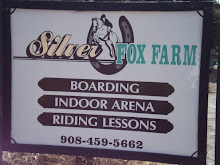First, improve and build upon your relationship with your horse through grooming.
Grooming simulates what the horses naturally do in herds. Horses will stand facing each other's hind end, shoulder to shoulder, and facing opposite directions. This allows them to "scratch" each other's shoulders, where they normally would not be able to reach. Horses tend to exhibit this behavior when they have similar ranking within the herd and have close relationships. You generally will not see horses that are at opposite ends of the pecking order exhibiting this behavior. Grooming also helps to establish "boundaries" for your horse. For example if you are brushing your horse, and he tries to reach around and give you a friendly nibble (return grooming), it gives you an opportunity to let your horse know that "friendly" nibbles are inappropriate. You can do this by pushing his/ her head back to face forward. You can also use your hand in a waving type motion which will "create" a wall that the horse understands. Now this doesn't mean to go crazy with your hands and start swatting all over. That would be an incorrect way to "wave" your hands. You want to be calm and relaxed around your horse. And your "waving" type motion should also be calm and relaxed. If you allow yourself to get worked up over anything this can create nervous energy in your horse. Your horse can perceive this as threatening and be intimidated by it, which can hinder the building of a close relationship with your horse.
Second, proper groundwork will give your horse a very solid foundation for
more advanced training.
Lunging and under-saddle work is an important aspect of groundwork that is often overlooked. It is very common for average horse owners to discredit the importance of groundwork and just focus on under-saddle or mounted work. For example they won't teach their horse to "whoa" during groundwork. Then when they are in the saddle the horse doesn't understand "whoa". When the horse doesn't understand the "whoa", it is now the horses fault. If the trainer had taught the horse to "whoa" while doing groundwork, the concept of "whoa" would have carried over to the under-saddle work. This makes it much easier for the horse to understand "whoa" while under-saddle. Just
like a home has a solid foundation, groundwork is a horse's solid foundation for training. Without a solid foundation everything will begin to crumble, and in a horse's case it will have various training issues that develop. Almost every single issue that occurs under-saddle, can be attributed in some way to poor ground training. You should allow the ground training to be nice and relaxed. The goal of ground training is to build a better relationship with your horse, and also to establish a good training system that the horse understands. This will then be built upon through the horse's career no matter which direction the horse takes.
Third, ground work is also very important for the safety of handler and horse.
If your horse does not have solid ground training it can become a chore just to lead your horse out of his stall, and tack him/ her up. From there it can escalate until you have a safety issue that not only affects you , but now affects others around you. Solid ground work starts by teaching a horse its personal space "bubble". Teaching a horse where it's ""bubble" is also allows the handler to direct where a horse places its body. By teaching a horse where to place different parts of his body you have much more control on the ground. This type of training is especially handy for when your horse has farrier or vet appointments. If you have this type of "control" on the ground it will make it easier for your farrier and vet. You will be able to tell the horse where to put his/ her body, and do it without shanking or jerking on your horses halter. Having this type of communication with your horse is a very rewarding relationship. It will allow you and your horse to have an enjoyable and rewarding relationship no matter which discipline you are in.
Learn something new every month from Horse Logic. A new article will be featured every month in From the Horses Mouth by Sara McKiness from Horse Logic.









No comments:
Post a Comment